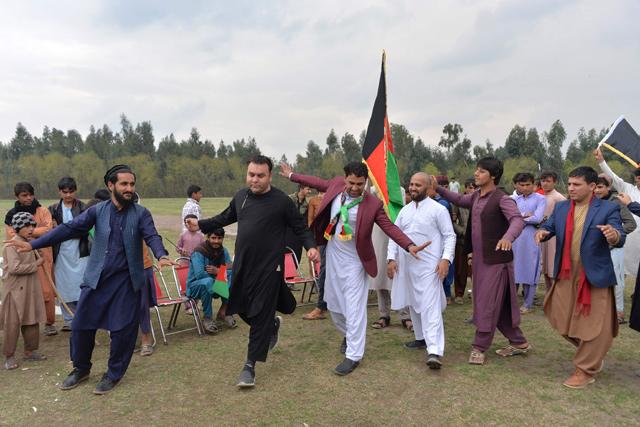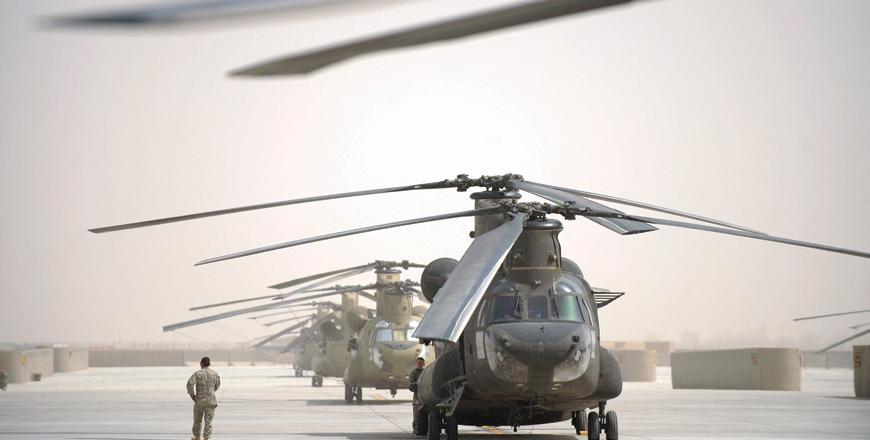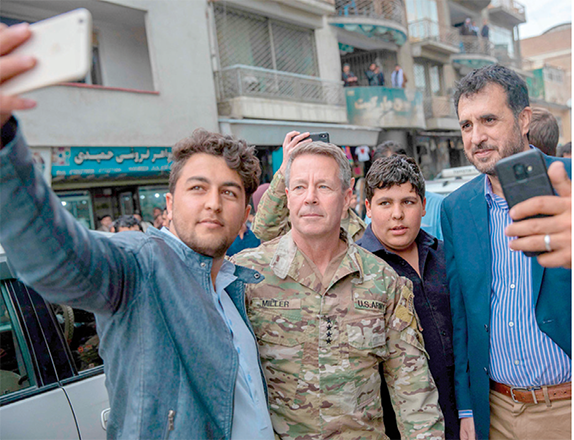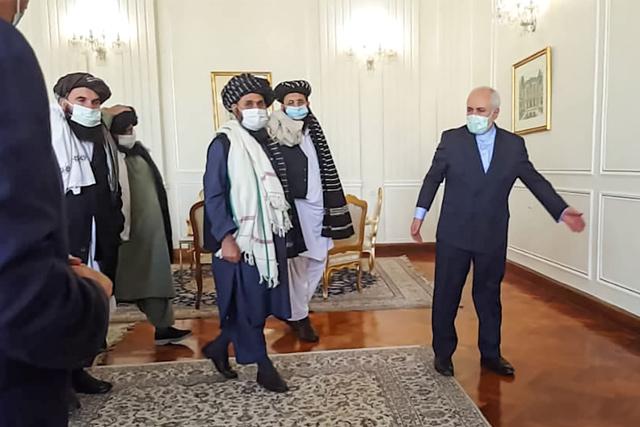You are here
Afghan gov't presses truce demand in Taliban talks
By AFP - Sep 14,2020 - Last updated at Sep 14,2020

In this file photo taken on February 28, 2020, youths dance as they celebrate the reduction in violence, in Jalalabad (AFP photo)
DOHA — The Afghan government on Monday pressed its calls for a truce with the Taliban, reiterating its desire for a long-term ceasefire at historic talks in Qatar.
The two sides are in the early stages of meetings in Doha as they try to hammer out a deal that would bring 19 years of bloodshed in Afghanistan to a close.
The Afghan government and its allies, including the United States, called for the warring sides to lay down their arms at Saturday's opening ceremony.
But the Taliban, who fought a years-long guerrilla campaign against American and Afghan forces after they were toppled in a 2001 US-led invasion, did not mention a truce as they came to the negotiating table.
The head of the peace process for the Afghan government, Abdullah Abdullah, suggested however that the Taliban could offer a ceasefire in exchange for the release of more of their jailed fighters.
Afghan presidential spokesman Sediq Seddiqi tweeted Monday that the presence of government negotiators at the talks “is aimed at achieving a ceasefire, ending the violence and ensuring lasting peace and stability in the country”.
The United States struck an agreement with the Taliban in February that will see it withdraw troops from Afghanistan.
The deal, which paved the way for the Doha negotiations, did not commit the insurgents to any reduction of violence, only requiring that it be “an item on the agenda” in negotiations.
But Crisis Group analyst Andrew Watkins told AFP “the Afghan government needs a ceasefire because without current levels of US support, it would very likely continue to lose ground to the Taliban”.
Schedules and a code of conduct for the talks were discussed in meetings on Sunday and were due to continue on Monday, according to the government side, but talks on substantive issues are yet to get underway.
Afghan government delegates warned that negotiations, which take place even as fighting continues in Afghanistan, would be arduous and messy.
‘Start of history’
Nearly two decades since the US-led invasion that toppled the Taliban, fighting still kills dozens of people daily and the country’s economy has been shattered, pushing millions into poverty.
Officials said six police were killed in a Taliban attack in Kunduz at the weekend, while five officers were slain in Kapisa province.
A roadside mine blast in the capital also wounded two civilians, while another blast hit Kabul district, although no casualties were reported.
Abdullah, chairman of Afghanistan’s High Council for National Reconciliation, called the recent upsurge in violence a “miscalculation”.
But he has stressed the process “could be the start of history made in the coming future — and hopefully sooner rather than later”.
During a speech at the opening event, Taliban co-founder Mullah Abdul Ghani Baradar repeated the insurgents’ message that Afghanistan should be run according to Islamic law, highlighting a likely sticking point.
A comprehensive peace deal could take years, and will depend on the willingness of both sides to tailor their competing visions for Afghanistan and the extent to which they can agree to share power.
The US special envoy on Afghanistan, Zalmay Khalilzad, said Afghans should learn from the failure to implement a political reconciliation process in the country after the Soviet Union completed its withdrawal in 1989.
“The Afghans who had sacrificed so much to push the Soviets out... failed politically by going to civil war with each other. I hope the Afghans are paying attention, learning the lessons of that period,” he told Al Jazeera TV.
“That’s why we have started this peace process.”
The US-backed negotiations come six months later than planned, owing to disagreements over a controversial prisoner swap agreed in February’s deal between the US and the Taliban.
Under the terms of that agreement, all foreign troops must leave Afghanistan by the spring of 2021, in exchange for security commitments from the militants.
In addition, 5,000 Taliban prisoners have already been released in exchange for 1,000 Afghan troops.
US President Donald Trump, who faces elections in less than two months, is eager to fulfil promises to end America’s longest war with the Taliban.
Related Articles
KANDAHAR, Afghanistan — Fighting between the Taliban and Afghan government forces resumed Sunday in the restive southern province of Helmand
DOHA — Washington and the Taliban are set to sign a deal Saturday to secure America's exit from its longest war through gradually withdrawin
TEHRAN (AFP) — Iran’s Foreign Minister Mohammad Javad Zarif on Sunday called for the formation of an “all-inclusive” Afghan government durin














